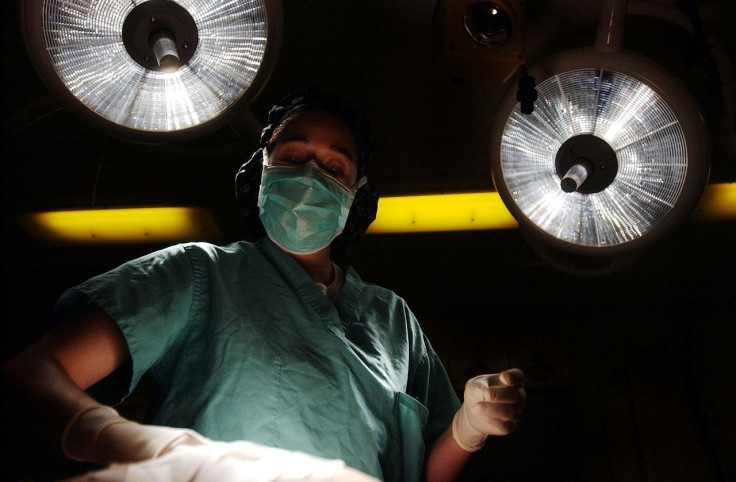General Anesthesia Won't Harm Cognitive Development In Children Under 3, Study Finds

Nobody likes having to go under with general anesthesia. It usually means you’re in for a surgery of some sort, and in rare cases the drugs can be dangerous in their own right. When a young child needs to go under, it can be scary for parents — what are the mental health consequences of being exposed to general anesthesia as a toddler? According to researchers from the Columbia University Medical Center and New York Presbyterian, nothing bad.
The study suggests that a single exposure to general anesthesia holds no cognitive risks for children under the age of 3, who are experiencing a very important stage in brain development. Called the Pediatric Anesthesia Neurodevelopment Assessment project, or PANDA, the research is the most comprehensive of its kind.
Around two million children are put under every year in the United States for various procedures ranging from diagnostic imaging to hernia repair. Parents worry, and rightfully so, since a number of animal studies suggest that anesthetic agents during early development can cause deficits in learning and other cognitive functions. Dr. Lena Sun, a professor of pediatrics and anesthesiology at Columbia, said very few clinical studies have explored whether the same holds true for humans.
“The potential neurotoxicity of anesthetic agents commonly used in general anesthesia has been one of the most pressing concerns in pediatric surgery in the past decade,” she said in a press release. “The PANDA project is among the most rigorously designed studies aimed at addressing this concern.”
Researchers looked at 105 healthy children who went under for hernia repair, a common childhood operation. They tested the children’s IQs and other cognitive skills including memory, language, and processing speed when the kids were between the ages of 8 and 15. These results were compared to a biologically related sibling of a similar age who had not had an experience with anesthesia. There was no statistically significant difference between the IQ scores of the two groups, and no difference in most of the secondary neurodevelopmental outcomes.
“Overall, this is good news for parents whose children need anesthesia for elective surgery or a diagnostic procedure,” Sun said. “Based on our findings, we can reassure parents that one exposure to anesthesia is safe for healthy young children.”
Still, the project left researchers with a few unanswered questions.
One issue the team observed was that the children who had been exposed to anesthesia exhibited more internalizing behavior, meaning they direct negative feelings inward, resulting in anxiety, social withdrawal, and feelings of guilt. Sun said the observation would need further evaluation and that more study would be useful on different participant pools and differences between the genders..
“We need to take a closer look at the effect of anesthesia on cognitive function in girls, since most of the subjects in the group exposed to anesthesia were boys,” she said. “Also, we need to look at the effects of repeated and prolonged exposure to anesthesia, as well as the effects of anesthesia on more vulnerable subgroups, such as children with serious medical conditions.”
Source: Sun L, Li G, Miller T, Salorio C, Byrne M, Bellinger D. Association Between a Single General Anesthesia Exposure Before Age 36 Months and Neurocognitive Outcomes in Later Childhood. JAMA. 2016.
Published by Medicaldaily.com



























